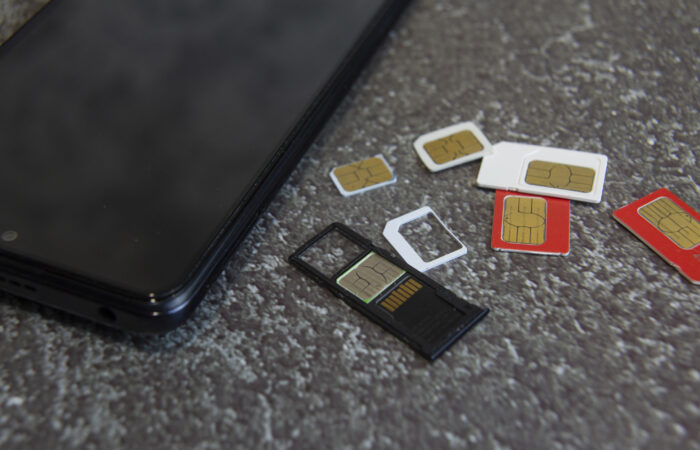As the digital assets landscape continues to evolve, so do the challenges and risks associated with it. Scams and fraud are an unfortunate part of this reality, and now, a new threat has emerged – fake crypto recovery scams. These scams often target victims who have already been harmed by a cryptocurrency fraud, seeking to take advantage of their desperation and lack of knowledge and victimize them all over again. Avoid crypto recovery scams by following our step-by-step guide.
At Cryptosec, we’ve observed a disturbing trend: over half of the victims who reached out to us lately have already fallen prey not just to initial cryptocurrency scams, but also to these fraudulent crypto recovery scams services. This number is on the rise.
We aim to equip you with practical advice on how to avoid crypto recovery scams.
Avoid Crypto Recovery Scams
1. Understand the Limits of Crypto Recovery: Cryptocurrency, by its nature, is incredibly difficult to trace and recover once it’s been transferred. This is because blockchain transactions are typically irreversible. Only a few percent of attempted recoveries succeed in recovering any funds. Any service claiming a high success rate or guaranteeing recovery should be considered with skepticism. Lots of skepticism.
Recovery also takes time. The most common way to recover funds is to monitor the movements of stolen funds until they reach a compliant exchange, at which point there are legal ways to freeze and recover the stolen assets. This whole process could take months or years. Any service that promises very quick recovery should be considered with skepticism.
To avoid crypto recovery scams always remember: if it sounds too good to be true, it probably is.
2. Never Share Your Private Keys or Seed Phrases: This is one of the most important rules to remember to avoid crypto recovery scams or any other crypto-related scams. Your private keys are the only way to access and control your crypto assets. Legitimate crypto recovery services will never ask for your private keys or seed phrase. There is no legitimate reason whatsoever for a recovery service to need this information. If a service asks for this information, it is almost certainly a scam.
Also, be careful of remote desktop solutions. Never enter your private key or a seed phrase while a service provider monitors your screen. Scammers could offer to show you some info via remote desktop solutions and then ask you to input your seed phrase while they are watching. No legitimate crypto recovery service will ever have to use remote desktop solutions.
3. Do Not Pay Upfront Fees (with very few exceptions): Many fake recovery services demand an upfront fee, promising that they will return your stolen cryptocurrency afterwards. A credible agency will be transparent about its pricing and typically will only charge a fee after a successful recovery.
Minor retainer fees might be required in advance in order to secure the required legal support, but those should be only a percentage of overall recovery fees. In some cases a provider might ask you to deposit the recovery fees in advance in an escrow service. However, these fees would be released to the provider only upon a successful recovery. If the recovery fails, the escrow fees would be returned to you. (In this case, be careful to only use legitimate escrow services).
4. Do Not Give Personal Information: Avoid crypto recovery scams and any other scams by never giving out personal information, such as social security numbers or bank account details, unless absolutely necessary and you’ve verified the legitimacy of the service.
5. Do Your Due Diligence: To avoid crypto recovery scams perform a comprehensive due diligence before engaging a crypto recovery provider. Research the company thoroughly. Check for genuine reviews, a professional website, a physical address, and other signs of a legitimate business. Make sure they are registered and regulated by relevant authorities.
6. Understand Their Methods: Legitimate services should be able to explain how they intend to recover your assets. If they’re using jargon to confuse you, or can’t or won’t explain their methods in a way you can understand, that’s a red flag. There are no secret tools and processes that would enable reversal of the fraudulent transactions or could “hack into scammer’s” wallet to recover your funds.
7. Ask for Credentials: Ask for professional credentials or certificates from the service provider. Legitimate investigators usually have a background in cybersecurity, law enforcement, or a related field and should be able to prove their expertise.
Most industry organizations that offer qualifications are also willing to validate claimed certifications, either by providing the means to validate a certification on their website, or by responding to emails and phone calls. As part of your due diligence you should validate provider’s claimed certifications. Any provider that is sharing or publishing falsified credentials is not legitimate.
8. Check for Affiliations: A reputable service is often affiliated with established institutions or organizations in the cybersecurity or legal field. Look for these affiliations and verify them independently.
9. Verify Their Success Stories: Many fraudulent services will provide ‘success stories’ or testimonials. Make sure to verify these stories independently. Ask for contact details of their previous clients to confirm their experiences.
10. Check Their Digital Footprint: Legitimate businesses will often have a solid digital footprint, including a robust website, active social media profiles, and press mentions. If the service doesn’t have a clear online presence, proceed with caution.
10. Use Escrow Services: When dealing with recovery services, consider using a trusted escrow service in case the service asks for money upfront. This adds a layer of protection by holding funds until services are delivered as promised.
11. Take Note of High-Pressure Tactics: Fraudulent services often pressure victims into making rushed decisions. If a service is rushing you or offering limited-time deals, it’s often a sign of a scam. Avoid crypto recovery scams by always taking the necessary time to perform your due diligence as described here.
12. Beware of Aggressive Marketing: Scammers often use aggressive marketing tactics, like sending unsolicited messages or using high-pressure sales tactics. Any service or a “crypto recovery expert” that contacts you out of the blue should be treated with caution.
13. Beware of Fake Social Media Recommendations: Crypto recovery scammers target their victims mostly on social media platforms such as Twitter or Reddit. Whenever a user publicly discloses that they have been victimized by a cryptocurrency scam, these scammers engage with the distressed party, often via automated bots. They make direct contact with the victim under the guise of offering assistance or providing unsolicited testimonials for a purported “crypto recovery expert”. Often, these endorsements are entirely fabricated, designed solely to give credibility to crypto recovery scammers.
Capitalizing on the victim’s vulnerability and desperation for a resolution they count on victims not being in the best state of mind to meticulously assess the legitimacy of these supposed lifelines. Avoid crypto recovery scams by always being skeptical of any recommendations, but especially those shared on social media by people you don’t know.
14. Beware of International Money Transfer Services: Some scams try to avoid using traceable cryptocurrencies and involve international money transfer services, often with the promise that services will be delivered upon receipt. If a service asks you to send money internationally via Western Union, XE, WorldRemit, etc., outside of regular banking channels and they refuse to accept cryptocurrencies, it’s likely a scam.
15. Be Wary of Copycat Brands: Some scammers imitate real, reputable recovery services to confuse victims. Always double-check URLs, email addresses, and other identifying information to ensure you’re dealing with the real entity.
16. Be Cautious of Non-Disclosure Agreements (NDAs): Scammers may use NDAs to intimidate victims and prevent them from seeking outside help or reporting scams to the authorities. Legitimate services should not prevent you from discussing your case with law enforcement or legal counsel.
17. Consult with Experts: If you are unsure about a service, consult with a trusted financial advisor, attorney, or law enforcement official. They can provide you with guidance and help you determine if the service is legitimate.
18. Consult with Friends and Family: Sometimes, a fresh set of eyes can help spot a scam. Before engaging with any service, consider sharing your plans with a trusted friend or family member.
19. Get a Second Opinion: If you’re considering using a crypto recovery service, seek a second opinion from a separate, independently verified service. If their assessments greatly differ, it may be a sign that one (or both) are not legitimate.
20. Join Crypto Communities: Joining cryptocurrency communities, such as forums or social media groups, can be helpful. They can provide a place to ask questions, share experiences, and learn more about the ever-evolving world of cryptocurrencies.
21. Report Suspected Scams: If you encounter a suspected scam, report it to your local authorities and to any relevant online platforms. You may not be able to recover your lost assets, but you can help prevent others from becoming victims.
Conclusion
In conclusion, navigating the crypto landscape can indeed be a challenging endeavor, riddled with potential pitfalls. Falling victim to a scam can be a devastating experience, but the added misfortune of being ensnared by a crypto recovery scam can be even more detrimental. As such, it is vital to arm yourself with knowledge and maintain a discerning eye to stay one step ahead of these fraudsters.
Remember, legitimate crypto recovery services, such as Crypto Investigators, offer detailed and transparent information about their processes, techniques, and pricing. They do not promise immediate or 100% recovery of lost funds and always adhere to legal methods. They also boast a team of qualified professionals with a verifiable track record in the field.
Beware of aggressive sales tactics, especially unsolicited offers on social media platforms. When it comes to crypto recovery, if it sounds too good to be true, it likely is.
Avoid crypto recovery scams by familiarizing yourself by actual statements and lies made by crypto recovery scammers see: Unveiling Crypto Recovery Lies.
To learn how we and other legitimate crypto investigation and recovery services operate see: How Legitimate Crypto Recovery Services Operate.
To learn how to proactively protect your crypto assets see our parent company, Cryptosec.







 Beware of crypto recovery scammers! Learn
Beware of crypto recovery scammers! Learn